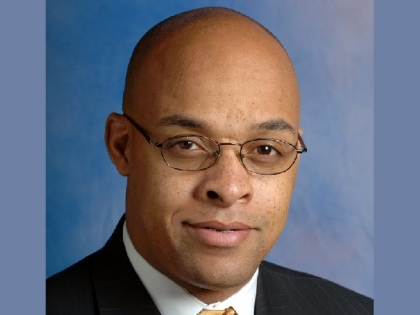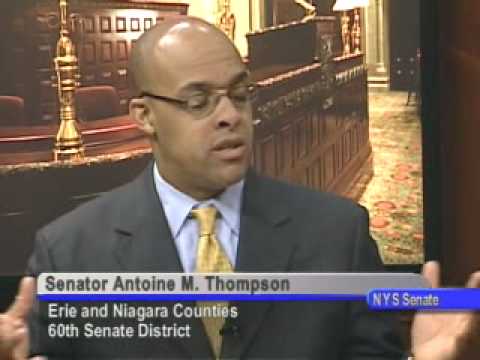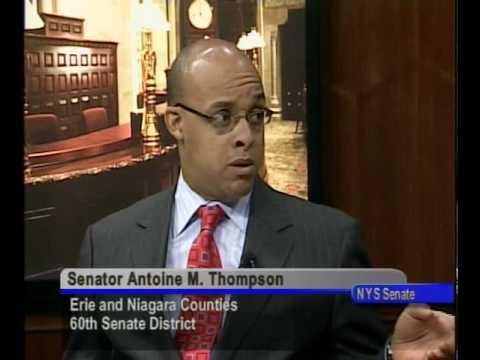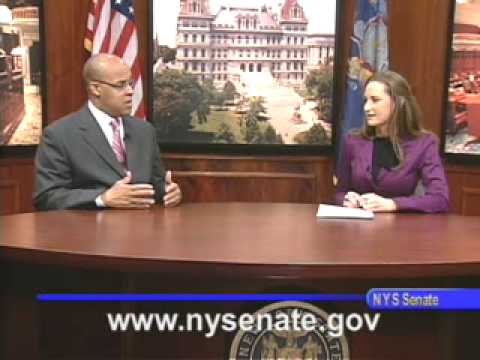
Senator Thompson Presses DEC On Solutions To Tonawanda Air Pollution "Letter to Commissioner Lays out Seven Proposals"
Antoine M Thompson
July 7, 2009
Tonawanda, NY- New York State Senator Antoine M. Thompson (D-Parts of Erie & Niagara Counties) and Chair of the Senate Environmental Conservation Committee, has been working with the Clean Air Coalition of Western New York and local officials for the last few months to find ways to help reduce toxic emissions coming from Tonawanda Coke Corp.
Calling pollution levels “unacceptable”, Thompson today sent a letter to NYSDEC Commissioner Pete Grannis proposing seven steps to help DEC cut emissions from Tonawanda’s industrial area that have been threatening the health of nearby residents.
Responding to complaints from the Clean Air Coalition, the DEC has been intensively monitoring the air in the Kenmore/Tonawanda area for the past year. The DEC has found very high levels of benzene, a known carcinogen and a byproduct of the coke making process. In addition, three other chemicals - acrolein, carbon tetrachloride and formaldehyde - have been measured in residential areas at more than ten times DEC’s health threshold, which is known as an Annual Guideline Concentration (AGC).
At the most recent Clean Air Coalition meeting, the DEC announced an agreement to cut emissions from the ammonia still at Tonawanda Coke Corp. This step is designed to reduce the emission of benzene and other irritants that have plaguing neighborhood residents. Calling this “an important first step” Thompson applauded the agreement, but said “ After listening to the neighbor’s concerns and carefully looking at the powers the DEC has under the law, I believe there is much more that can be done under current regulations. I want DEC to examine my suggestions closely. If they aren’t enough to reduce the health risks from air pollution in this neighborhood, you can be sure new laws will be forthcoming to deal with this situation.”
In Senator Thompson’s letter to Commissioner Grannis, he proposed seven steps for the DEC to take to address the issues:
• Regulate Tonawanda Coke under the stricter Part 212 air regulations instead of the Part 214 regulations that DEC has been using.
• Examine whether this facility should be considered a major source of Hazardous Air Pollutants, a technical status which should give DEC more tools to regulate emissions.
• Put more emphasis on other chemicals of concern for the neighborhood- formaldehyde, acrolein, and carbon tetrachloride. Thompson asked DEC for a letter documenting the synergistic impact of pollution coming from trucks and cars at the South Grand Island Bridge as it combines with compounds emitted by local industrial facilities. He would use this letter as part of his effort to eliminate the tolls at the bridge.
• Thompson requested DEC to document any physical or technical barriers to effectively measuring visual violations of smoke opacity or fugitive emissions at Tonawanda Coke. Despite obvious pollution coming from Tonawanda Coke’s stacks, DEC has been able to document relatively few violations.
• Tonawanda Coke transports coal tar waste from the old Bethlehem Steel plant to burn in their coke process. Thompson requested DEC to test samples of this waste, which can be highly toxic, to determine if it is advisable to use in the coke making process.
• Thompson called for the establishment an “Environmental Benefit Program” for Tonawanda Coke, where fines for violations can be used to rectify the impacts of the violations on the community.
• Thompson noted that the EPA (Environmental Protection Agency) and the DEC have different thresholds for the concentration level of dangerous pollutants that trigger action at a site. Given that DEC’s threshold is more protective of public health, Thompson requested that DEC’s standard be used.
The Senator vowed to continue to monitor this situation closely. “This is an obvious pollution hot spot in Western New York. Cleaning up the air here will be a major victory and the first step in helping us all breathe a little easier.”
-30-
Share this Article or Press Release
Newsroom
Go to Newsroom
Senator Thompson Interviews Senator Schneiderman
March 23, 2010

